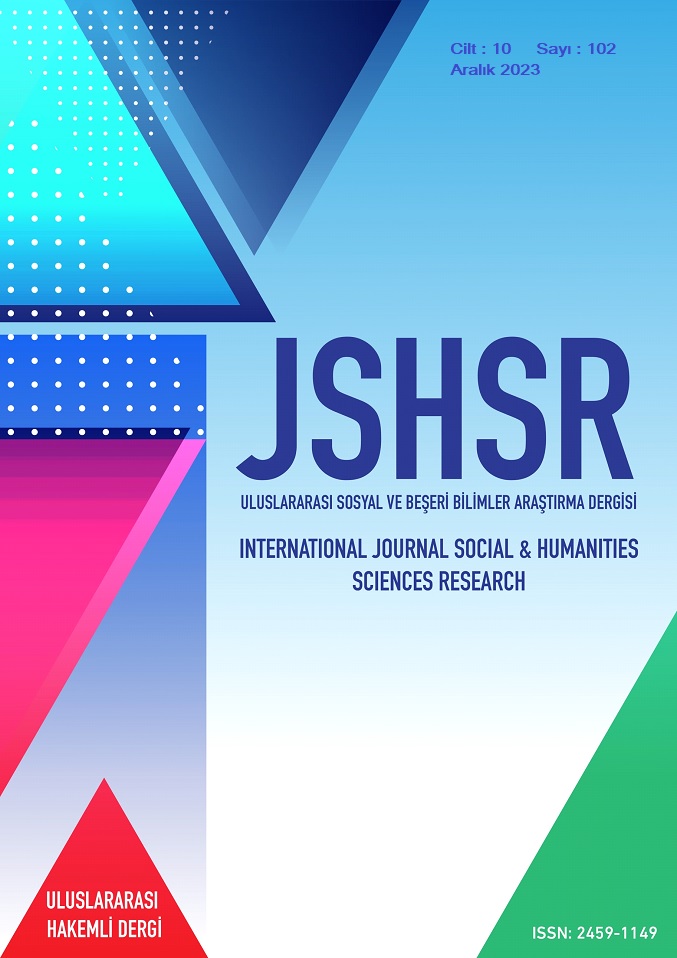A Historical Comparison on the Effects of Aging, Focusing on Past Achievements, and Having Absolute Strength on Mental Flexibility and Sense of Infallibility: Mustafa Kemal Atatürk and Napoleon Bonaparte
DOI:
https://doi.org/10.5281/zenodo.10431416Keywords:
Mustafa Kemal Atatürk, Napoleon Bonaparte, Absolute Power, AgingAbstract
The fact that people in power have absolute power has created various problems throughout history. The aging of an all-powerful manager has often led to a hardening of his attitude and a heightened sense of infallibility. Throughout history, many famous personalities have been victims of these factors. However, there are those who resist these influences. This study examines Napoleon Bonaparte's last few years in office as examples of how having absolute power, getting older, and an excessive focus on past achievements can reduce mental flexibility and heighten the sense of infallibility. As an opposite example, the last few years of Mustafa Kemal Atatürk were analyzed. The main purpose of the study is to show, through a historical example, that not being able to protect mental flexibility and creativity brings destruction, while revealing the benefits of the opposite situation through a historical event.
References
Akça, B. (2006). Mustafa Kemal’in Askerlik Hayatında Çanakkale Savaşları’nın Yeri. Muğla Üniversitesi Sosyal Bilimler Enstitüsü Dergisi, (Özel Sayı), 107-114.
Almond, G. (1956). Comparative Political Systems. Journal of Politics, 18(3), 391-409.
Armaoğlu, F. (1983). 20. Yüzyıl Siyasi Tarihi. Türkiye İş Bankası Kültür Yayınları.
Armaoğlu, F. (1997). 19. Yüzyıl Siyasi Tarihi 1789-1914. Türk Tarih Kurumu Yayınları.
Aydemir, Ş. S. (2011). Tek Adam. C. 1. Remzi Kitapevi.
Aydın, M. (2015). Çanakkale Savaşlarında Mustafa Kemal Atatürk. Belgi Dergisi, 0(10), 1455-1460.
Barnes, G. (2022). Napoleon Bonaparte. Kronik Yayınları.
Diamond, A. (2013). Executive Functions. Annual Review of Psychology, 64(0), 135-168.
Gutchess, A. (2014). Palsticty of the Aging Brain: New Directions in Cognitive Neeroscience. Science, 346(6209), 579-582.
Lövden, M., Ghisletta, P. ve Lindenberger, U. (2005). Social Participation Attenuates Decline in Perceptual Speed in Old and Very Old Age. Psychology and Aging, 20(3), 423-434.
Mango, A. (2013). Atatürk Modern Türkiye’nin Kurucusu. Remzi Kitapevi.
Mann, M. (2004). The Dark Side of Democracy: Expalining Ethnic Cleansing. Cambridge Press.
Mikaberidze, A. (2016). Operational Art of War. Leiden and Brill Publishing.
Mütercimler, E. (2016). Fikrimizin Rehberi Gazi Mustafa Kemal. Alfa Yayınları.
Mütercimler, E. (2021). Gelibolu 1915. Alfa Yayınları.
Ortaylı, İ. (2018). Gazi Mustafa Kemal Atatürk. Kronik Yayınları.
Öztürk, T. (2019). Karşılaştırmalı Harp Tarihi: Napolyon Karşısında Rus Savunması ve İstiklal Savaşı’nda Türk Direnişi. (Yayınlanmamış Yüksek Lisans Tezi). (571726). Sosyal Bilimler Enstitüsü, Dokuz Eylül Üniversitesi.
Raz, N. ve Kennedy, K. (2009). Aging and the Neurobiology of Learning and Memory. Neuropsychology Review, 19(4), 415-435.
Renshon, S. (2018). The Psychological Assessment of Politic Leaders: With Profiles of Saddam Hussein and Bill Clinton. Routledge.
Roberts, (A). (2023). Napoleon. Kronik Yayınları.
Svolik, M. (2012). The Politics of Authoritarian Rule. Cambridge Press.
Tucker, R. (2006). Stalin in Power: The Russian Revolution from Above 1928-1941. W. W. Norton and Company.
Uçarol, R. (2006). Siyasi Tarih 1789-2001. Der Yayınları.
Uçarol, R. (2013). Siyasi Tarih 1789-2012. Der Yayınları.
Üzen, İ, (2007). İngiliz Resmi Yayınına Göre Birinci Dünya Savaşı’nda Mustafa Kemal Paşa’nın İngilizlerle Son Çarpışması: Haritan Olayı (26 Ekim 1918). Tarih Dergisi, 0(45), 175-192.
Volkan, V. ve Itzkowitz, N. (2011). Atatürk/Anatürk. İstanbul: Alfa Yayınları.
Downloads
Published
How to Cite
Issue
Section
License
Copyright (c) 2023 INTERNATIONAL JOURNAL OF SOCIAL HUMANITIES SCIENCES RESEARCH

This work is licensed under a Creative Commons Attribution 4.0 International License.


